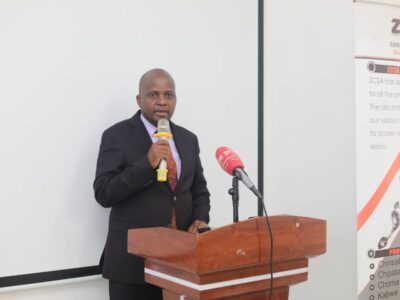The government has pledged to resolve the energy challenges disrupting key sectors of Zambia as Finance and National Planning Minister, Situmbeko Musokotwane, presented the K217 billion 2025 National Budget in Lusaka on Friday.
Musokotwane attributed the current power crisis to previous opposition to energy diversification, stating, “The nation’s reliance on hydropower, which makes up 84 percent of energy production, has made it vulnerable to climate change.”
Due to droughts, power generation capacity had dropped to 1,225 megawatts, far below the installed capacity of 3,811 megawatts.
He outlined a multi-pronged approach to address the crisis, including importing electricity from neighboring countries like Namibia, Mozambique, South Africa, and Zimbabwe.
Read more:Maamba Collieries secures financing for $400 million power plant expansion
Additionally, the government is promoting off-grid solutions such as industrial generators and solar systems, which are being installed in markets, public hospitals, and schools.
Musokotwane also announced plans to double the capacity of the Maamba thermal power plant to 600 megawatts by next year.
ZESCO Limited and private investors are developing several solar power stations across strategic locations, including Chisamba (100 megawatts), Choma (50 megawatts), Kasama (100 megawatts), and Kariba (100 megawatts).
Musokotwane emphasized government’s net-metering initiative, which encouraged consumers to generate their own power and sell excess electricity back to the national grid.
In June, the government launched the Energy Single Licensing System to streamline the approval process for energy projects.
This move is expected to shorten the time it takes to obtain licenses and permits.
Musokotwane reiterated that the current power shortage resulted from past resistance to expert advice on diversifying Zambia’s energy mix, warning that “overreliance on hydropower has proven costly.”
To improve rural electrification, the minister said the government has completed 131 grid and 38 off-grid renewable energy projects, with 12 mini-grids currently operational, resulting in 2,095 connections.
By the end of the year, the minister said 15 new solar projects are expected to be completed, bringing an additional 3,421 connections to rural areas.
WARNING! All rights reserved. This material, and other digital content on this website, may not be reproduced, published, broadcast, rewritten or redistributed in whole or in part without prior express permission from ZAMBIA MONITOR.












Comments